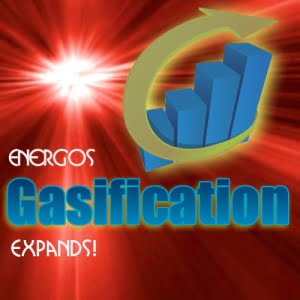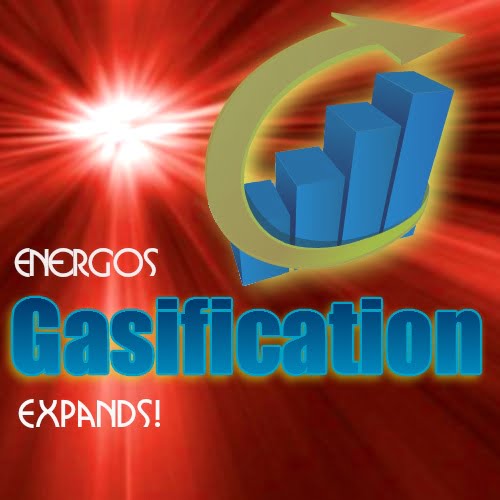 Despite the technological promise held by the Gasification of Residual Waste its introduction has been slow. While waste incineration has continued to grow rapidly, gasification uptake is only gradual in the UK and many other countries. As a proportion of the total residual waste stream used or energy recovery gasification technology remains a minor player.
Despite the technological promise held by the Gasification of Residual Waste its introduction has been slow. While waste incineration has continued to grow rapidly, gasification uptake is only gradual in the UK and many other countries. As a proportion of the total residual waste stream used or energy recovery gasification technology remains a minor player.
It has to be accepted that incineration (burning) is a highly effective method to divert waste away from landfill, due to the fact that as a proportion of the original input tonnage, the ash residue is lower than just about any other option. However, residual waste gasification does that, and is a much better technology.
The objections about incineration being inefficient, when all the parasitic loads from scrubbing are considered are a concern. Plus, for incineration it is hard to dismiss worries about the disposal of the remaining hazardous substances. These can be in the ash, and the cleaning up of incinerator flume gases can easily lead to the generation of yet more waste in the form of the “flue-gas scrubbing plant” waste (i.e. flue gas clean-up residues), are real.
[box type=”info” style=”rounded” border=”full”]This article was published in July 2014.[/box]
“incineration has continued to grow … but worries are real…”
Gasification is much better. Gasification, when done well avoids the need for expensive clean up of the flue gases because so few contaminants are produced, and the process gas it produces whilst usually used to generate power so far, holds potential in so many ways as a product, and a potentially important part of the much lauded “circular economy”. Unfortunately, in a climate which drew back from thoughts of any “innovative process” risk-taking at the start of the recession it looked for a while that gasification of residual waste, as a waste treatment process, might never get a fair opportunity to prove itself.
“it looked for a while that gasification, as a waste treatment process, might never get a fair opportunity to prove itself”
That's why the news this week from gasification of residual waste specialist Energos, that they have weathered the recession back into financial health and profitability, should be seen as particularly welcome.
In their press release they state that:
Privately owned UK clean energy from waste specialist Energos, headquartered in Warrington, UK, has powered up its profits and growth forecast according to its annual financial results (year ending 31 March 2014).
Profit before tax and interest for the past year was £1.62m and turnover rose to £8.86m, with the company forecasting further substantial improvements in both turnover and profit in the current financial year.
Nick Dawber, Managing Director of Energos, said:
“The financial crisis hampered our original plans, but we are now entering a phase of strong growth. We have returned to profitability this last year and expect to deliver increased profits during the current financial year. With £170 million worth of work in progress and more projects in the pipeline, we are already well into a plan to take on 25 more people this year in engineering, project management and operational roles.”
As an employer, gasification of residual waste specialist Energos, also expects to increase its workforce twofold, in an expansion which it believes will quadruple its turnover over the coming 18 months as it moves forward with three multi-million pound facilities, which it calls “advanced conversion facilities”. If the term “advanced conversion facilities” means nothing to you, then read-on as all becomes clear in their next statement that it means a combination of sustainable waste treatment technologies:
A 93,600 tonne facility, using Energos technology, at AmeyCespa's Milton Keynes Waste Recovery Park and 140,400 tonne plant at Viridor's Glasgow Recycling and Renewable Energy Centre, are scheduled for completion in 2016, prior to commissioning and rigorous testing. Both facilities will process non recyclable, non hazardous household waste – as the final stage of an integrated three-step waste treatment process, also including recycling and anaerobic digestion.
Financial closure on a third facility using Energos advanced conversion technology, in Derby, is expected this summer.
If you have been following the European waste scene you will be aware that Energos has previously delivered eight waste fuelled advanced conversion facilities. These are located across Norway, Germany and the UK.
A further nine “advanced conversion facilities” have been awarded planning permission for Energos plants in the UK, and these are for both public and private clients, including three in-house build-own-operate projects to be located in Knowsley, Irvine and Lisburn.
Energos also holds the accolade of being the first UK company to be awarded double Renewables Obligation Certificates (ROCs).
Gasification of Residual Waste: The Energos Process
Now for some tech-speak to explain their process:
The Energos' proven gasification process converts residual waste into a gas by using the heat of partial combustion to free hydrogen and carbon in the form of a synthetic gaseous fuel (syngas). The tightly controlled combustion of the syngas ensures complete and efficient combustion resulting in very low flue gas emissions.
These low emissions outperform EU Emissions Standard (2000/76/EC). As such, Energos facilities typically operate with NOx emissions as low as 25% of the EU limit, without any form of de-NOX system. At the same time CO and TOC emissions are also much lower than the limits and process stability is excellent.
Further information: www.energos.com





